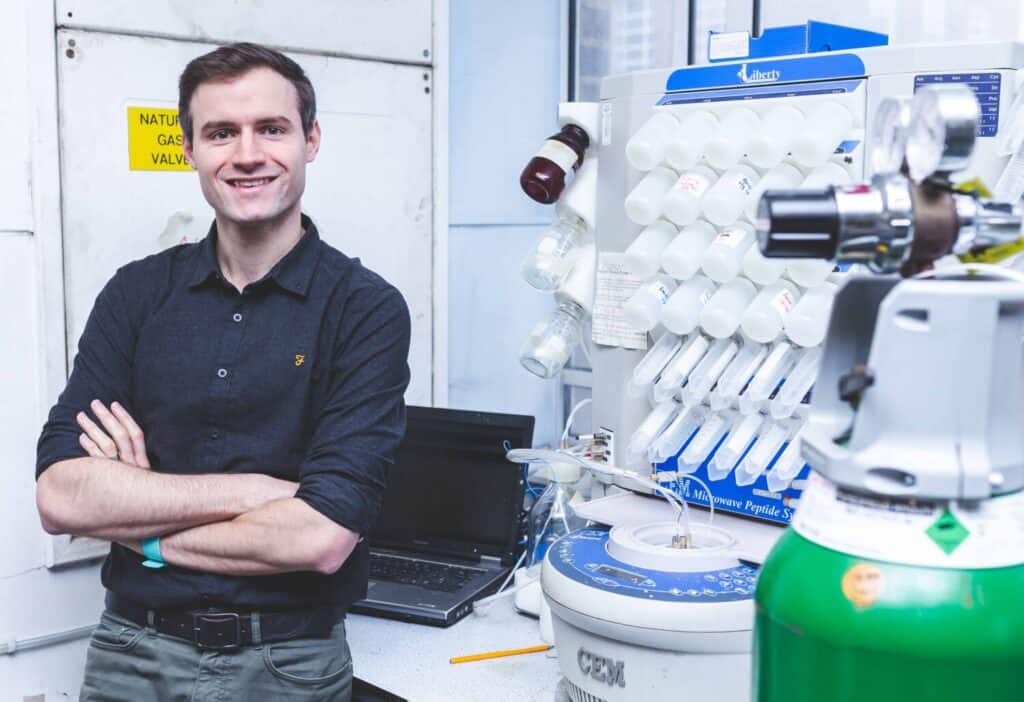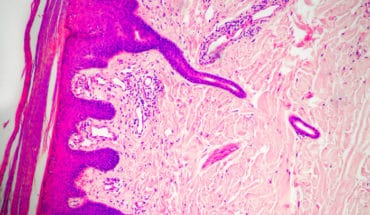Researcher awarded €1.5 million to create new antibiotics that can kill drug resistant superbugs.
A Queen’s University Belfast researcher has been awarded €1.5 million for a mission to help develop new types of antibiotics that can target and kill bacteria that are resistant to current antibiotics.
Antimicrobial resistance is a major global health threat, accounting for more than five million deaths a year. Deadly infections like pneumonia, wound or bloodstream infections are becoming untreatable as they are resistant to antibiotics.
The Queen’s project, led by Dr Stephen Cochrane from the School of Chemistry and Chemical Engineering, will run for five years and its key focus is creating new antibiotics that can overcome antibiotic resistance. He will be supported by five early career researchers.
Dr Cochrane explains: “Almost all of our antibiotics work by crossing the cell membrane to get inside the cell, and once they are inside, they disrupt an essential process, which then kills the cell.
“The problem is that many compounds can’t cross the cell membrane, and for those that do get inside, the cell can neutralise their effect, rendering them useless.”
Dr Cochrane’s team will now begin to create new “chemical tools” that will enable the discovery and development of a whole new range of antibiotics that are capable of destroying the harmful bacteria.
He comments: “Antimicrobial resistance (AMR) is one of the greatest challenges to human health. If it continues to develop at the current rate, the negative impact on global health and the economy could be much worse than the impact of Covid-19.”
“To combat AMR, we need to develop new antibiotics. In the past 60 years only five new classes of antibiotics have been approved for clinical use. A major hurdle in antibiotic discovery is finding antibiotics that can cross the cell membrane and overcome the resistance mechanisms of these cells.
“My project ‘NEW HOPE’ offers a new approach to antibiotic discovery. Instead of looking for targets inside the cell, I’ll focus on cell-surface targets. To do this, my team will use the tools of synthetic organic chemistry and molecular biology to develop new tools for antimicrobial discovery and unlock novel antibiotics.”
Funding for the project has been awarded by the European Research Council (ERC). Its Starting Grants programme recognises exceptional early-career researchers with excellent track records that show great promise in becoming future research leaders.
ERC grants are the most prestigious awards that scientists can hold in Europe, and this is the twelfth ERC award which has been given to a Queen’s University Belfast academic since the scheme opened in 2007.
President of the European Research Council, Professor Maria Leptin said: “It is a pleasure to see this new group of bright minds at the start of their careers, set to take their research to new heights. I cannot emphasise enough that Europe as a whole – both at national and at EU level – has to continue to back and empower its promising talent. We must encourage young researchers who are led by sheer curiosity to go after their most ambitious scientific ideas. Investing in them and their frontier research is investing in our future.”
Dr Cochrane adds: “I’m hugely honoured to have been awarded an ERC Starting Grant. I’m very thankful to my amazing mentors and colleagues for the help and support they provided during this journey. I look forward to building a new research team and tackling such an important global challenge.”

Dr Stephen Cochrane. Queen’s University Belfast, University Road, Belfast
- Gut microbiome could delay onset of type 1 diabetes - 3rd April 2025
- The da Vinci 5 Robot Is Set To Transform Bariatric Care: - 31st March 2025
- Beyond money: the hidden drivers fuelling child food insecurity - 31st March 2025






